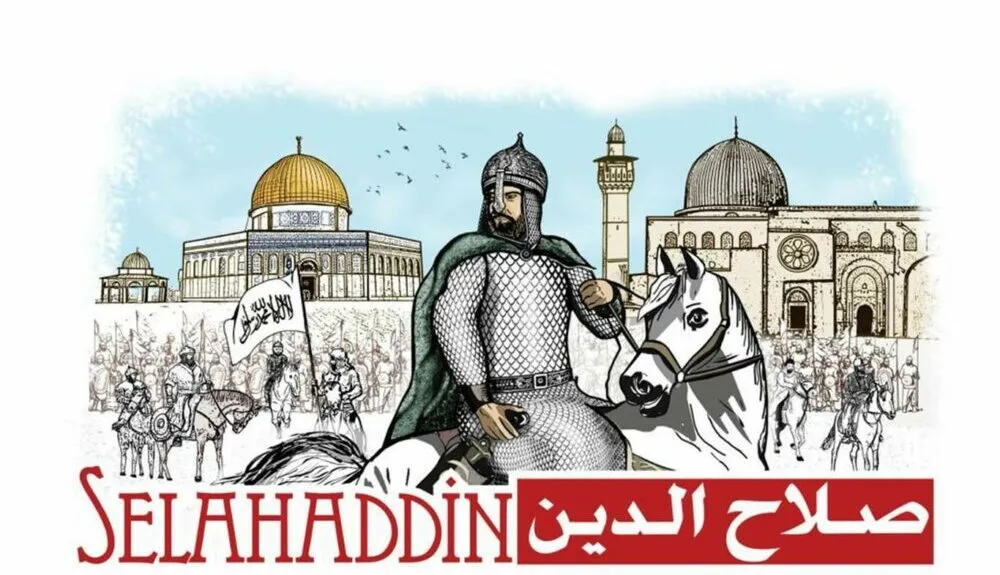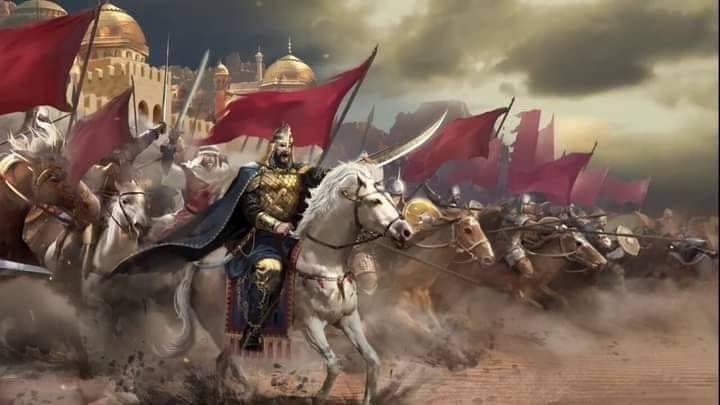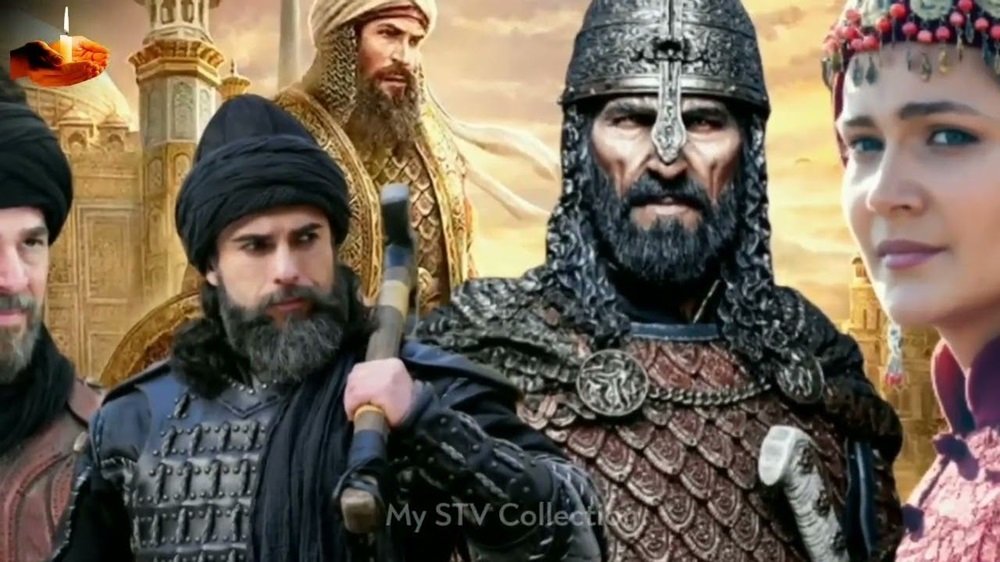
Sultan Salahuddin Ayyubi: A Legendary Leader of the Muslim World
Introduction to Sultan Salahuddin Ayyubi
Sultan Salahuddin Ayyubi, commonly known as Saladin in the West, is a prominent historical figure who played a significant role during the Crusades in the 12th century. His leadership, military strategies, and commitment to justice and unity earned him a lasting legacy in both the Muslim world and among his adversaries.
This article explores the life, achievements, and enduring impact of Salahuddin Ayyubi, showcasing why he remains a symbol of honor and integrity.
Early Life of Sultan Salahuddin Ayyubi
Family and Background
Salahuddin Ayyubi was born in 1137 in Tikrit, a city in modern-day Iraq. He belonged to a Kurdish family of noble descent, with his father, Najm ad-Din Ayyub, serving as a governor of Tikrit under the Zengid dynasty. Salahuddin’s lineage provided him with a strong foundation, both politically and culturally, which would later influence his rule.
Early Education and Training
From a young age, Salahuddin displayed an aptitude for leadership and military strategy. He received a rigorous education that included studies in the Quran, Islamic law, and military tactics. His uncle, Asad ad-Din Shirkuh, a renowned general, significantly impacted Salahuddin’s development, providing him with opportunities to gain military experience early in his life.

Rise to Power
Serving under Nur ad-Din Zengi
In his early twenties, Salahuddin joined the military ranks under Nur ad-Din Zengi, the ruler of Aleppo and Damascus. Serving as an officer, he quickly gained recognition for his courage and tactical brilliance. His loyalty and service helped him build valuable alliances and gain further military experience.
Becoming the Sultan of Egypt
After the death of Shirkuh in 1169, Salahuddin was appointed vizier of Egypt. He recognized the strategic importance of the region and began consolidating his power. By leveraging both military strength and diplomatic skill, he effectively dethroned the Fatimid caliphate and established himself as the Sultan of Egypt, founding the Ayyubid dynasty.
The Unification of Muslim Territories
Diplomacy and Military Strategies
One of Salahuddin’s key accomplishments was the unification of fragmented Muslim territories. Faced with the external threat of the Crusaders, he adopted both military and diplomatic strategies to bring various Muslim factions under a single banner. His approach included forming alliances through marriages and agreements, demonstrating a keen understanding of political dynamics.
Consolidation of Power
By the 1180s, Salahuddin had successfully consolidated his power across Egypt and Syria. He expanded his territories through military campaigns and diplomacy, positioning himself as a formidable leader in the Muslim world. His unification efforts laid the groundwork for a united front against the Crusaders.
The Crusades and Salahuddin’s Role
The Battle of Hattin
In 1187, Salahuddin faced the Crusader forces at the Battle of Hattin, a pivotal moment in the Crusades. His strategic acumen and knowledge of the terrain allowed him to outmaneuver the Crusaders. The battle ended in a decisive victory for Salahuddin, leading to the capture of thousands of Crusader troops and significant military resources.
Recapturing Jerusalem
Following the victory at Hattin, Salahuddin launched a campaign to recapture Jerusalem, which had been in Crusader hands since 1099. The siege of Jerusalem in September 1187 was marked by careful planning and execution. Salahuddin’s forces breached the city’s defenses, and he entered Jerusalem triumphantly, restoring Muslim control over the holy city.
Salahuddin’s Leadership and Governance
Administration of Egypt and Syria
Salahuddin’s leadership extended beyond military prowess; he was also an effective administrator. He implemented various reforms in governance, promoting trade, agriculture, and education. His administration focused on enhancing infrastructure, which facilitated economic growth in the regions under his control.
Justice and Fairness in Rule
Salahuddin was known for his commitment to justice. He ruled with a sense of fairness, treating all subjects, regardless of their faith, with respect and dignity. His equitable governance fostered loyalty among his subjects, earning him admiration even from those outside the Muslim community.

Salahuddin’s Military Campaigns
His Strategy Against the Crusaders
Salahuddin’s military strategies were characterized by patience and careful planning. Rather than engaging in every battle, he focused on weakening the Crusader forces through attrition. By disrupting their supply lines and avoiding direct confrontations until conditions were favorable, he was able to achieve significant victories.
Siege of Acre and Aftermath
The Siege of Acre (1189-1191) marked one of the most protracted conflicts of the Crusades. Although Salahuddin ultimately lost this battle to the combined forces of Richard the Lionheart and Philip II of France, the siege had weakened the Crusaders significantly, and it highlighted Salahuddin’s ability to endure in the face of adversity.
The Treaty of Ramla
Negotiations with Richard the Lionheart
After years of conflict, Salahuddin faced Richard the Lionheart during the Third Crusade. Despite their opposing forces, both leaders held a mutual respect for each other’s skills. In 1192, they negotiated the Treaty of Ramla, which allowed Christians to access Jerusalem while keeping the city under Muslim control.
Peace Agreement and End of the Third Crusade
The Treaty of Ramla not only marked the end of the Third Crusade but also set the stage for a fragile peace in the region. Salahuddin’s diplomatic efforts highlighted his belief in negotiation and dialogue as tools for conflict resolution.

Salahuddin’s Legacy in History
As a Symbol of Muslim Unity
Salahuddin is celebrated as a symbol of unity and strength among Muslims. His ability to unite various factions against a common enemy made him an enduring figure in Islamic history. His leadership during the Crusades serves as an example of how effective governance and strong leadership can overcome divisions.
Western Perceptions of Salahuddin
Interestingly, Salahuddin is often portrayed positively in Western literature and culture. His chivalry, honor, and strategic brilliance have earned him respect even among his adversaries, illustrating the complex nature of historical narratives.
Personal Life and Character of Salahuddin
Devotion to Islam
Salahuddin was deeply devoted to Islam. His faith guided his actions, and he often engaged in prayer and charitable activities. He viewed his military campaigns as not just political endeavors but also as a means to defend and promote Islam.
Traits of Humility and Generosity
Despite his immense power, Salahuddin was known for his humility. He lived a modest lifestyle and was generous with his wealth, often contributing to charitable causes. His character endeared him to his subjects, further solidifying his legacy as a benevolent ruler.

Salahuddin’s Death and Succession
His Final Days
Salahuddin passed away on March 4, 1193, in Damascus after a brief illness. His death marked the end of an era in the Muslim world. He left behind a legacy of unity and resilience, having successfully fought against the Crusaders and strengthened Muslim territories.
Succession and Division of His Empire
Following his death, the Ayyubid dynasty was divided among his sons and relatives, leading to fragmentation of power. While Salahuddin’s empire did not last in its entirety, his influence continued to shape the politics of the region.
Cultural and Religious Influence of Salahuddin
Role in Islamic Art and Architecture
Salahuddin’s reign significantly impacted Islamic art and architecture. Many mosques, schools, and hospitals were constructed during his time, reflecting the era’s architectural advancements and contributing to the cultural heritage of the Muslim world.
Religious Reforms and Endowments
He initiated various religious reforms and established numerous endowments for educational and religious institutions. This commitment to education and scholarship fostered a rich intellectual environment that benefited future generations.

Salahuddin in Popular Culture
Depictions in Literature
Salahuddin’s life has inspired countless works of literature, both in the East and the West. From historical accounts to romanticized tales, his character embodies the ideals of chivalry, honor, and courage, making him a favorite subject among writers.
Film and Television Portrayals
In modern times, Salahuddin has been portrayed in films and television series, further cementing his status as a legendary figure. These portrayals often focus on his military exploits and the themes of heroism and valor.

Lessons from the Life of Sultan Salahuddin Ayyubi
Leadership and Integrity
The life of Salahuddin Ayyubi teaches valuable lessons about leadership. His integrity, sense of justice, and ability to lead by example serve as an inspiration for current and future leaders.
Diplomacy and Negotiation
Salahuddin’s success also illustrates the importance of diplomacy in leadership. His ability to negotiate and find common ground, even with adversaries, highlights the power of dialogue in resolving conflicts.

Conclusion
Sultan Salahuddin Ayyubi stands as a monumental figure in history, revered for his military genius, ethical governance, and leadership qualities. His life story is a blend of triumphs and challenges, exemplifying virtues of courage, compassion, and wisdom. As we reflect on his legacy, we find valuable lessons in unity, justice, and integrity that resonate even today, reminding us of the enduring power of strong leadership in the face of adversity.
FAQs About Sultan Salahuddin Ayyubi
Q1: Who was Sultan Salahuddin Ayyubi?
A1: Sultan Salahuddin Ayyubi, commonly known as Saladin, was a Muslim leader who played a pivotal role during the Crusades, particularly known for recapturing Jerusalem in 1187.
Q2: What were Salahuddin’s major achievements?
A2: His major achievements include the unification of Muslim territories, the decisive victory at the Battle of Hattin, and the establishment of the Treaty of Ramla with Richard the Lionheart.
Q3: How did Salahuddin govern his empire?
A3: Salahuddin was known for his fair and just governance, implementing reforms, improving infrastructure, and ensuring the welfare of his subjects, regardless of their faith.
Q4: What is Salahuddin’s legacy?
A4: Salahuddin’s legacy is one of unity, justice, and leadership, making him a symbol of Muslim strength and resilience. He is respected by both Muslims and Christians for his honor and nobility.
Q5: How is Salahuddin portrayed in modern culture?
A5: Salahuddin has been depicted in various forms of literature, films, and television shows, often highlighting his heroic deeds and diplomatic skills, which continue to inspire audiences today.




